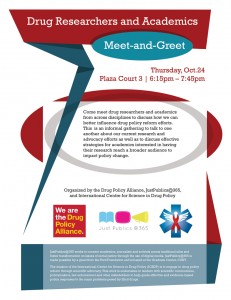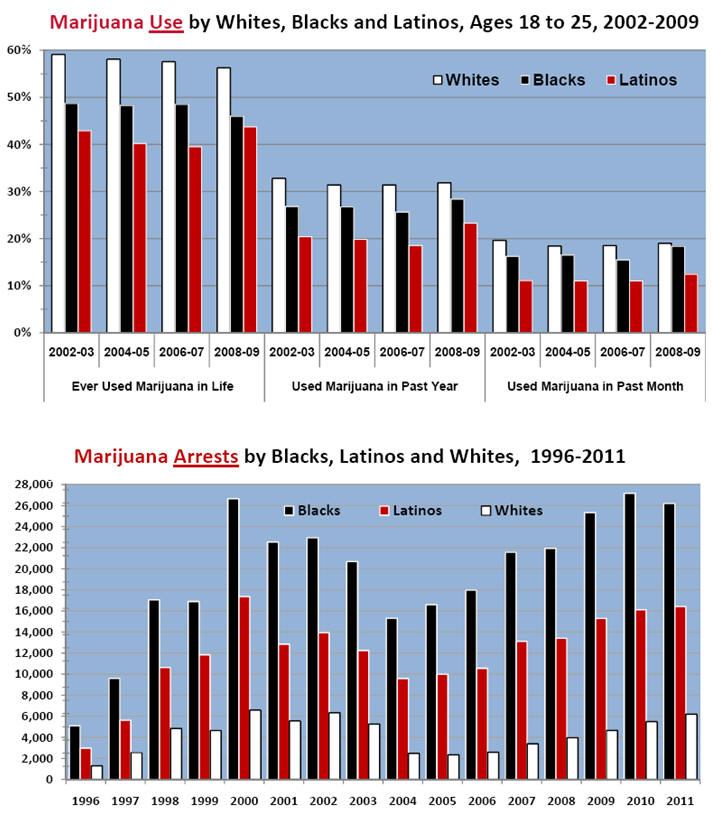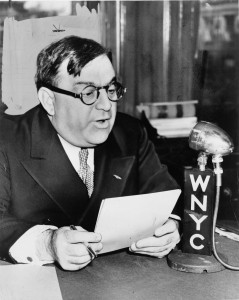Many academics want their research to have broader impact. In fact, according to a recent study, an estimated 92% of social science scholars said they wanted to connect more with policymakers. With the ever-increasing clamor for “evidence-based policy,” policymakers – elected and appointed officials at the local, state and national level – really do want to hear from academics. Here, I offer some ways academics can get involved, tips for effectively engaging policymakers, and some frequent challenges.
As someone who was trained as an academic researcher and has worked in policy for a number of years now, I’ve come to realize that academics have an important role to play in transforming policy. Most recently, I’ve been working on the front lines of efforts to end the war on drugs and reduce mass incarceration. In my view, academics not only have important knowledge that can shape policy, their voices often have enormous weight and credibility by virtue of the training and credentials they carry.
Simply put, academics have an easier time accessing policymakers and are more likely to be taken seriously than does the average citizen without an advanced degree. There’s a privilege and a power to holding a PhD or an MD that can and should be used to promote social justice.
Despite a long tradition of notable scholar activists, many academics are either reluctant to get involved in policy advocacy or simply aren’t sure exactly how to go about it.
Here’s the good news: for most issues, you should be able to find a policy, advocacy, or grassroots community organization that is willing to work with you to be your most effective. There are lots of nuances to policy advocacy; in return for your help, most organizations will gladly walk you through those.
 (New York State Capitol – Image source.
(New York State Capitol – Image source.
One place to find policymakers)
How Can Academics help?
Quick policy activities. These are some ways to engage for those who are just dipping a toe into the waters of policy-making or only have a few minutes, including:
- Signing up for and responding to email action alerts (yes, these really can have an impact);
- Writing letters and making phone calls;
- Attend conferences, receptions where academics and policymakers mingle. My organization, Drug Policy Alliance, is teaming up with JustPublics@365 and the International Centre for Science in Drug Policy to host one of a reception that’ll do just that. Stop by the Sheraton Downtown Thursday night (6:15pmMT, Plaza Court 3), if you’re in Denver. We’d love to see you there!

If you have a little more time and energy, you might try engaging with media, both traditional and digital to get your research out to policy makers.
Get your work in legacy (broadcast) media outlets, such as:
- Letters to the Editor (LTEs)
- Op-Eds
- Be a guest on a television news show
Broaden the reach of your own work by learning to use the tools of digital media, such as:
If you’re an academic that’s fresh out of skills in either legacy or digital media, then you might consider taking some of these Mediacamp Workshops. They’re all completely free and designed especially for academics who want to reach a broader audience with their work.
Other ways to get involved include:
- Create fact sheets, policy briefs or other highly accessible materials that summarize research about the issue;
- Tell a compelling story to help personalize an issue and highlight the human costs (I’m talking to you, qualitative researchers and humanities scholars);
- Organize your academic colleagues – at your institution, or in your professional association – for sign-on campaigns and other forms of advocacy;
- Convince your professional association to sign on to a policy proposal;
- Lobby at your state capitol or city council or meet with legislators in their district offices;
- Flesh out the policy implications of your research (or, the research you’ve reviewed in your area of expertise) to influence policy proposals.
To get you started, here are a few “tips of the trade” that can you help you avoid some of the most common mistakes. My work lately has been mostly at the state level working in Albany, but these guidelines are useful whether you’re trying to reach city, county, state or national lawmakers.
Tips for Being More Effective
TIP #1: Identify an organization working on the issue you care about and find the most effective one.
On any given issue, there will be a few organizations that are working on the issue. Your first step should be to familiarize yourself with the landscape of organizations and identify the one you think has been most effective.
TIP #2: Be sure to refer to your credentials when contacting policymakers – they matter.
When you reach out to elected officials, make sure that you mention your degrees and institutional affiliations. These sorts of credentials matter when you’re talking to policy makers. Without your credentials, you’re just another person with an opinion. And if you happen to be a constituent of the policymaker, be sure to mention that too.
TIP #3: Messaging really, really matters.
Most advocacy organizations have worked long and hard to develop effective messaging on their issues. It’s worth your time to speak to folks who have given this a lot of thought. Some organizations will even help you craft and/or place your op-ed or Letter to the Editor in major news outlets.
TIP #4: Work closely with an organization that understands the political scene to help craft a realistic policy proposal.
After you’ve become more deeply involved on an issue, you may have an idea for a new policy that would address a seemingly intractable problem. Crafting a policy and seeing it through the legislative process is definitely a long-term project, but it can be worth it to see lasting change. Before you spend a lot of time on your own crafting what is no doubt a brilliant new policy, it’s a good idea to work closely with an organization that has a clear understanding of the current political scene and what kinds of proposals might just make it through and which ones are dead-on-arrival.
- Scholar Strategy Network (SSN) – If you want your research to influence policy, but don’t know how to make those connections, you might consider applying to become part of the Scholar Strategy Network (SSN), which brings together leading scholars to address pressing public challenges at all levels. Scholars in the network prepare short, vividly written briefs highlighting their research findings and offering policy options about a wide range of issues. SSN scholars engage in consultations with policymakers in Washington DC and state capitals, and also work closely with advocates and leaders of citizen associations.
TIP #5: Ask what research needs to be done and do it.
Typically, academic researchers have their scholarship done before they contact a policy organization, but it can also work the other way around. Sometimes, scholars will ask what kind of research needs to be done to address policy needs, and then set about to do that kind of research. CUNY Professor Harry Levine had been doing important research on marijuana arrests. He got involved with the Drug Policy Alliance and then worked with them to produce a number of highly influential reports highlighting the racial disparities and fiscal waste of marijuana arrests. Levine’s report on the fiscal waste of such arrests is here, and was picked up by Alternet; Jim Dwyer of The New York Times then featured some of Levine’s research in an Op-Ed, “Whites Smoke Pot, but Blacks are Arrested.” (There’ll be more about Harry Levine’s work in a post to follow in this series.)
- The Tobin Project – If you want to do research that fills a gap in policy-making, you might contact The Tobin Project, which emphasizes “transformative research in the social sciences” and facilitates policy-scholar connections. The Tobin Project starts by identifying the gaps in research that might influence policy, and then finding scholars who want to engage policy by conducting original research that makes a contribution in this way. They recently received a MacArthur Award for Creative & Effective Organizations, so it looks like they might be on to something.
Challenges for Academics Who Want to Influence Policy
Part of the reason I encourage academics to work with experienced policy organizations is because academia isn’t generally set up to train scholars to be effective policy advocates. In fact, many features of academia actually may make pose challenges for those who want to influence policy, such as:
- Different metrics of success. Even though changing a policy can impact thousands and thousands of lives, the kinds of activities above are rarely acknowledged or rewarded within academia. Books and/or peer-reviewed journal articles are likely the currency of your institution, but unfortunately, it’s the rare policymaker that looks to those sources to develop policy.
- Different language. Most academics are concerned with precision and nuance, while most policymakers are looking for bullet points and sound bites.
- Different forms of power and influence. Just like the politics of academic institutions, each legislative body has its own set of (usually unwritten) rules about how power really works and who is really running show. A good policy advocacy organization can help you uncover how policy is really made in your jurisdiction.
- Different skills sets. Academics have lots of great skills that make them naturals at influencing policy, but some people may not know the first thing about how to conduct a lobby visit or neutralize an opponent’s argument. Again, this can be taught.
The great news is that – for the most part – these are challenges that are easily overcome. More and more, I’m hearing from academics at all stages of their career that they wish their research could have more of a real-world impact.
It can.
I’ve worked with a number of extraordinarily talented scholar-activists who have re-shaped and profoundly influenced policy and in doing so, they have positively impacted the lives of thousands of people. With a little investment of your time and talents and working with the right policy organization to gain the information and skills you need, so can you.
~ Guest blogger Julie Netherland, PhD (Sociology, CUNY, 2011), is Deputy Directory of the New York State Policy Office within the Drug Policy Alliance. She works closely with Compassionate Care New York, a group of patients, providers and organizations working together to pass a bill that would relieve the suffering of thousands of seriously ill New Yorkers by establishing a carefully regulated medical marijuana program in New York. You can follow her on Twitter @jnetherland.







